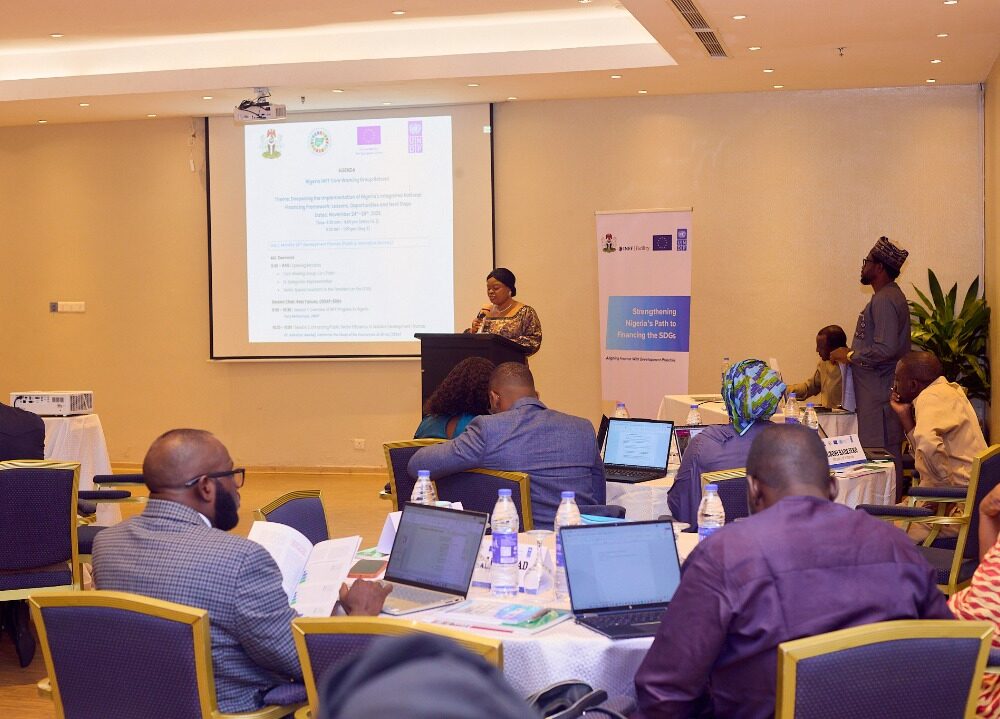In the last few days since Nigeria’s new government announced an N8,000 palliative for 12 million poor Nigerian families, you would think that, all of a sudden, Nigerians had gone back in time to the Ayi Kwei Armah’s Ghanaian years. Or that the scales had just suddenly fallen off the people’s eyes. Criticisms, snide commentaries and comparative placements of this government, side by side the Muhammadu Buhari government’s similar policy failure, are pelted on Aso Rock Villa. Has the matrimony of barely eight weeks begun to manifest traces of rupture?
The matrimony of pre-independence Ghana with Kwame Nkrumah witnessed a similar rupture not too long after it began. Ghanaian politician, political theorist and revolutionary, Nkrumah had led the then Gold Coast to independence from Britain in 1957, having become its first Prime Minister in 1952. One of the most greatly debated African leaders, Nkrumah came into office with great hopes as a young, promising leader with theoretical plans of how to liberate Ghana and Africa. This renown preceded him into office. He spoke glowingly on how he would show the world the model of peaceful transition from colonial rule to independence. Not only did this transition from colonialism to democracy fail, in 1964, Nkrumah made Ghana a one-party state. This sponsored amendment to the constitution made him president for life. As socialist and nationalist, Nkrumah ran a totalitarian, authoritarian government that was intolerant of dissent and mowed opposition. He also conducted elections considered everything but free and fair. He was however eventually toppled in a coup d’etat in 1966 by the National Liberation Council and he escaped to Guinea where he lived the rest of his life.
Arrmah fictionalized this romance between Ghana and Nkrumah in The Beautyful Ones Are Not Yet Born. Therein, he painted the canvass of Nkrumah leadership’s disappointment, darkening the pictorial image of post-independence Ghana with graphic descriptive images of filth, messy environment, excreta, phlegm and putrefaction. With these, he depicted the intensity of the various levels of corruption and poverty under Nkrumah. To reinforce the images, Armah conjured powerfully disgusting scenes of fictive Ghana enveloped by decaying lavatories and rotting dump yards. In reality, Ghana sunk phenomenally and with it, incinerating lofty dreams which then began to give way to desperation. Rather than the hopes which Ghanaians reposed in Nkrumah for a revolution that would liberate them from the dark times of colonialism, what they got confronted with was postcolonial disillusionment. Armah painted these in fictive images of the new national elite’s power abuses, corruption and mind-boggling poverty. Nkrumah, The Beautyful Ones seemed to have concluded, was leader of a band of men, who the people realized rather late, were false Messiahs. They were leaders who, unbeknown to the people, ascended to power with the major aim of improving their own elite fancies. As he went back home in a bus, the book’s main character reflected on how “all around decaying things push inward and mix all the body’s juices with the taste of rot” and how this degeneration symbolized the doomsday of a corrupted Ghana.
In Nigeria, shocks and disgusts have ruled the airways since the presidency sought and got a N500 billion approval to cushion the effect of harrowing pains occasioned by the subsidy removal. To be fair to this government, after its sudden, peremptory and unilateral removal of subsidy and the harrowing pains Nigerians have gone through thereafter, very little quick-win opportunities exist for it to make an instant show of empathy to the people. In virtually all sectors of the Nigerian economy where this government could demonstrate its empathy to the plights of the people, no visible or achievable low hanging fruits abide. For instance, if the Bola Tinubu government decides to flood the streets with public transportation, how long will the formalization of purchase agreements of those vehicles take, for the mass of the people to feel the pulse of transportation ease? Thus, the government’s apparatchiks justify the recourse to this failed model of palliatives as the only available to government at the moment. However, if the government had begun from the angle of talking to and engaging with Nigerians ab initio, it would not have been difficult to convince the people to wait for the maturation of a holistic package of tackling the endemic poverty in the land. This would have been more desirable than merely throwing palliatives at the “poorest of the poor” like feeds thrown at dogs as this palliative regime indicates.
There is no doubting the fact that there is connect between governmental policies and poverty reduction in Africa. So, if the Tinubu government gets its policies right, it can significantly reduce poverty in Nigeria. World Bank, IMF and other multilateral agencies have studied the incidence of poverty in Africa and have come to the conclusion that fighting it goes beyond simplistic policies. For instance, factors like lack of income and productive resources sufficient to ensuring sustainable livelihood, hunger and malnutrition, ill health, limited or lack of access to education and other basic services, increased morbidity and mortality from illness, homelessness, inadequate, unsafe and degraded environment, social discrimination and exclusion and lack of participation in decision making in civil, social and cultural life, among many others, have been found to aid the multiplication of the destructive cells of poverty. Poverty in Africa has also been attributed to corruption and poor governance, infrastructure, diseases and poor health facilities. Indeed, poverty and corruption are said to share same umbilical cord, with one cankerworm breeding the other.
Poverty is the oldest and the most resistant virus in the third world, unleashing a devastating gale of destructions on developing countries. Its rate of killing is held to be far more than any disease’s known since the genesis of mankind. Poverty has been said to be more corrosive than malaria and HIV/AIDS and is far deadlier than Ebola. Thus, if the Tinubu N8,000 palliative, just as its name indicates, is merely for the poor to feed for six months, not only is it barely enough, it is a colossal waste of N500 billion by any government whose utmost aim is to combat poverty and lack. If the overall Bola Tinubu government’s plan is to fight poverty, it has to begin with a much more encompassing umbrella and strategy because fighting poverty isn’t as simplistic as offering a token of palliatives to a blood-guzzling god of penury. It can only be fought with strong institutions and equitable distribution of resources and done by a non-corrupt government.
Africa and Nigeria are plagued by programmes which, on the outward, are designed to fight poverty but which are disguised conduits to fatten the stomach linings of governmental elites. Experiences have shown that the funds, most times, ended in the esophagus of corrupt individuals. Because of the paddy-paddy government we run in Nigeria, apprehending those who stole previous governments blind is always the best way to begin. New governments lack the political will to take on these dinosaurs of corruption. If this government were serious about disconnecting the chain of poverty in Nigeria, the first thing I should do was to investigate what went wrong under the Buhari government. Trillions of Naira, in various funny shibboleths grouped as Trader Monie, Federal Ministry of Humanitarian Affairs, Disaster Management and Social Development were implemented which, in the opinions of Nigerians, were avenues to divert national monies into private pockets.
As I have asked previously, what is the street credibility of the Bola Tinubu government to assure Nigerians that a N500 billion earmarked for the poor would ultimately get to them? There is acute cynicism on the streets of Nigeria. Like the Nkrumah totalitarian government, what we have today is a “one-party state” filled with the single profile of officials whose pasts are pockmarked by maggots, filth, messy excreta, phlegm and putrefaction, decaying lavatories and rotting dump yards that Ayi Kwei Armah gave vivid description of. The totalitarianism isn’t about a single political party. It is that of a single mind of filth and corruption. This is a government in which, in less than two months, allegations of mounting corruption of governmental aides demanding and getting bribes that run into billions of Naira to put persons in office are rife. The Senate, under a man who, shortly before his ascension into office, was alleged to be wanted by the EFCC, has also been said to have padded the palliatives sum to benefit its members. These are the aides of the president who would prosecute the disbursements of the N500 billion palliatives.
More importantly, what rationale would justify the presidency offering N8,000 to “the poorest of the poor” while a bill, brought before the National Assembly last week, demanded the sum of N70 billion for parliamentarians to “improve the working conditions of new members”? We have been told by those who foisted this regime of poverty on the poor that the N8,000 will cushion the agony of poverty on them. Even sweepers of President Tinubu’s Bourdillon Street, Lagos cannot rejoice at being dolled that condescending sum. If a sweeper on that elite street buys doughnut and pays for commuting to their place of work daily from the N8,000, the palliative cannot last a week. So, if the amount is indeed a palliative, as its name connotes, what succor would it bring the way of the poor? Somebody did the arithmetic and concluded that each of the lawmakers involved in the N70 billion “palliatives” demanded by sinecure legislators from Nigeria would be hoisting home a booty of approximately N149 million. As poor as Nigerian poor are, what can N8,000 do for them? Conversely, in the same bill brought before the House of Representatives, farmers who suffered devastating blows from floods across the country in 2022, will be getting N19 billion.
The food security announcement made by government last week sounded too vague, too omnibus to capture the dire situation at hand in the Nigerian economy. We all know that insecurity is a major bane of food production in Nigeria today as farmers cannot go to their farms. Insurgents in the north demand taxes from farmers before they can access their farms. Poultry farmers are facing the harshest time of their entire operation in Nigeria today. What is the texture of this omnibus declaration of food security emergency? What are its details? Those are the essential Nigerians demand to know whether it is another Nkrumah pronouncement of liberation of Ghana. The food emergency declaration by this government sounded, to many Nigerians, like a throw-fodders-to-hungry-ruminants strategy which lacks cogency, articulacy and verve. If it was well thought out, please provide the details.
The N8000 palliative for the poorest of the poor smacks of a cynical contempt for them. It seems to approximate the disdain this government has for them.





